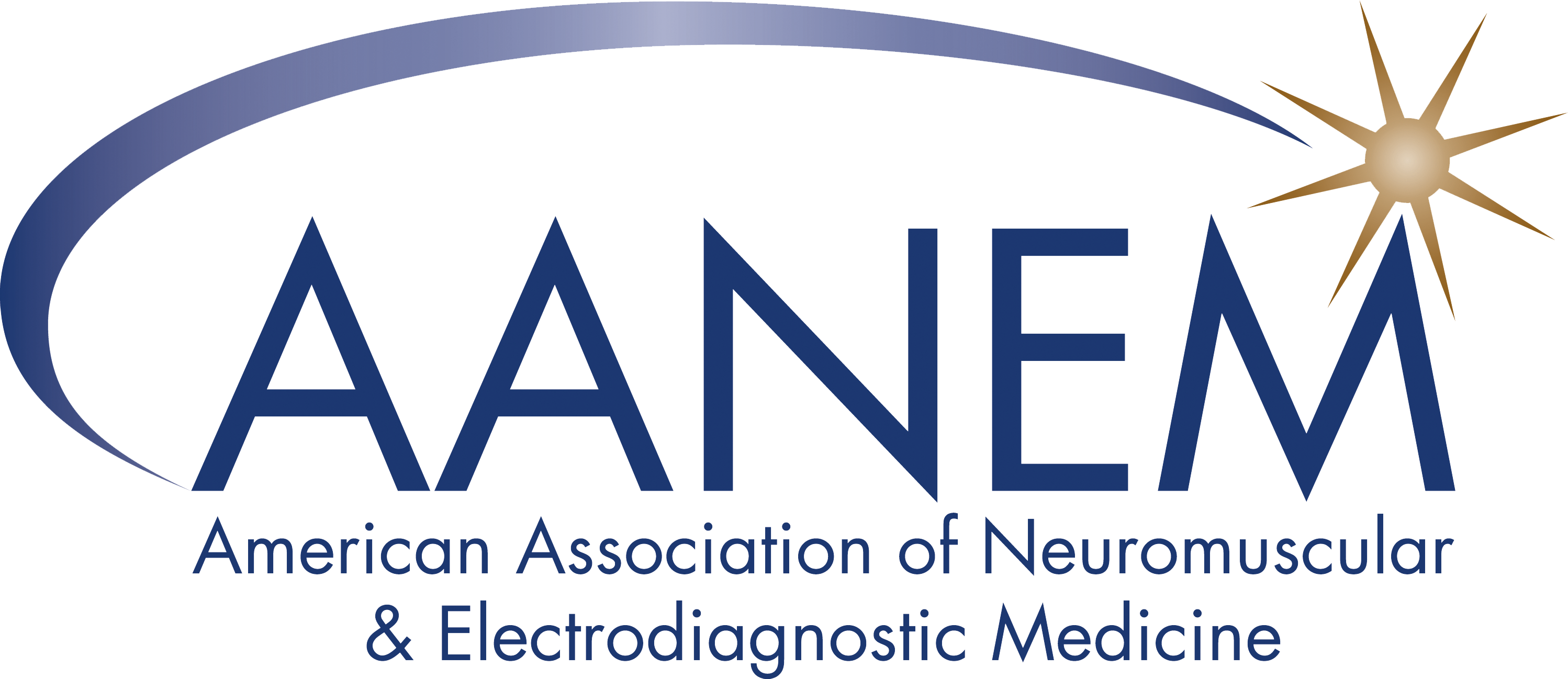FAQs
Why should my laboratory seek accreditation?
The AANEM EDX Laboratory Accreditation Program:
- Demonstrates clinical excellence in electrodiagnostic medicine
- Proves a laboratory's commitment to providing the highest quality health care and a safe environment for patients
- Provides patients, referral sources, and payers with a credible measure to differentiate the laboratory's quality of care
What types of practices can apply for accreditation?
Accreditation is available to all types and sizes of practices based in the United States, including:
- Private Practices
- Solo or Group Practices
- Academic Institutions
- Hospital Based Practices
- Independent Diagnostic Testing Facilities
What does the EDX Laboratory Accreditation Program evaluate?
Will my ABEM certification be recognized by the accreditation program?
Yes, accreditation with exemplary status is the highest level of accreditation recognized by AANEM. Exemplary status is granted to laboratories where the lab medical directors are certified by at least one of the following boards:
- American Board of Electrodiagnostic Medicine (ABEM)
- American Board of Psychiatry and Neurology (ABPN) in Clinical Neurophysiology or Neuromuscular Medicine
- American Board of Physical Medicine & Rehabilitation (ABPMR) in Neuromuscular Medicine
How long will our lab remain accredited once we achieve the designation?
What is the EDX Laboratory Accreditation Program?
How much will it cost to apply for accreditation?
Why will there be a separate charge for accrediting satellite locations?
What will happen after the application is submitted?
What will happen if a laboratory is denied accreditation?
Will there be site visits?
What is required for accreditation with exemplary status?
- American Board of Electrodiagnostic Medicine (ABEM)
- American Board of Psychiatry and Neurology (ABPN) in Clinical Neurophysiology or Neuromuscular Medicine
- American Board of Physical Medicine & Rehabilitation (ABPMR) in Neuromuscular Medicine
The AANEM Lab Accreditation application asks for examples of quality improvement activities my laboratory has engaged in over the last 2 years. What types of activities can demonstrate quality improvement?
Quality improvement generally describes is a process designed to raise the quality of EDX medical services within the laboratory in order to improve the health outcomes of the laboratory’s patients. There are a number of ways a laboratory can demonstrate quality improvement, a few examples include:
- Distributing patient satisfaction surveys, reviewing the responses, and modifying or implementing laboratory procedures or policies based upon the feedback received
- Conducting periodic peer review sessions to ensure accuracy of the diagnosis
- Meeting with colleagues to discuss difficult studies
How do I determine if our laboratory qualifies as a satellite laboratory?
Does AANEM have a model policy that I can adopt?
Laboratories seeking accreditation from AANEM's Electrodiagnostic Laboratory Accreditation Program must demonstrate a commitment to compliance with all privacy, security and electronic transaction code requirements of the Health Insurance Portability and Accountability Act (HIPAA). In order to demonstrate this commitment, applicant laboratories must submit a HIPAA Compliance Policy with their applications.
AANEM has not created a model HIPAA Compliance Policy. However, there are a number of resources available online, both free and fee-based services, which may help you create a policy that is appropriate for your laboratory. The Agency for Health Care Administration (AHCA) has a comprehensive HIPAA Policy and Procedure Manual available for download on the HIPAA website, which may provide guidance when drafting a HIPAA Compliance Policy for the accreditation program. Please be advised that the AANEM does not warrant that the policies created by the AHCA will be suitable for a laboratory’s particular purposes or comply with any local, state, and/or federal law.
Before adopting a particular policy, an applicant laboratory should be reviewed by an attorney knowledgeable with federal and state privacy laws related to the use and storage of medical records.
AANEM does offer a few other model policies on the Model Policies page.
Does AANEM have any guidance on what is needed for the reports we submit?
The EDX Laboratory Accreditation Program requires physicians working in the lab to abide by certain continuing education and proficiency requirements, which include completing a minimum of 100 EDX consultations each calendar year. Our lab limits its practice to pediatric patients and does not see enough patients each year for all physicians to conduct 100 EDX consultations. Is our lab eligible for accreditation?
- Active primary board certification in neurology or PM&R
- Active medical license in the state they are practicing
- 100 EDX medicine consultations in each calendar year (25 consultations for pediatric physicians)
- Stay on track each year to meet the 25 CME credit requirement during the 5-year accreditation period (~ 5 CME per year)
It has been a long time since we have submitted our accreditation application. When can we expect to hear from AANEM?
Does a satellite laboratory need to apply for its own accreditation?
Do the technologists who work in the lab need to be certified for the lab to be accredited?
What happens if the lab medical director leaves the lab?
Accreditation after expiration of accreditation status
All accredited laboratories shall have a 3-month grace period after expiration of their certificate to complete the reaccreditation material. If the reaccreditation materials are completed prior to the expiration of the 3-month grade period, the laboratories will maintain their original certificate number. If a laboratory does not complete the reaccreditation materials prior to the expiration of the 3-month grace period, the laboratory will be required to complete the initial application and, upon completion of the initial application, the laboratory shall receive a new certificate number. If the lab director contacts the AANEM with extenuating circumstances, the AANEM will consider extending the grace period to 6-months or another reasonable time-frame that is acceptable to the committee.
